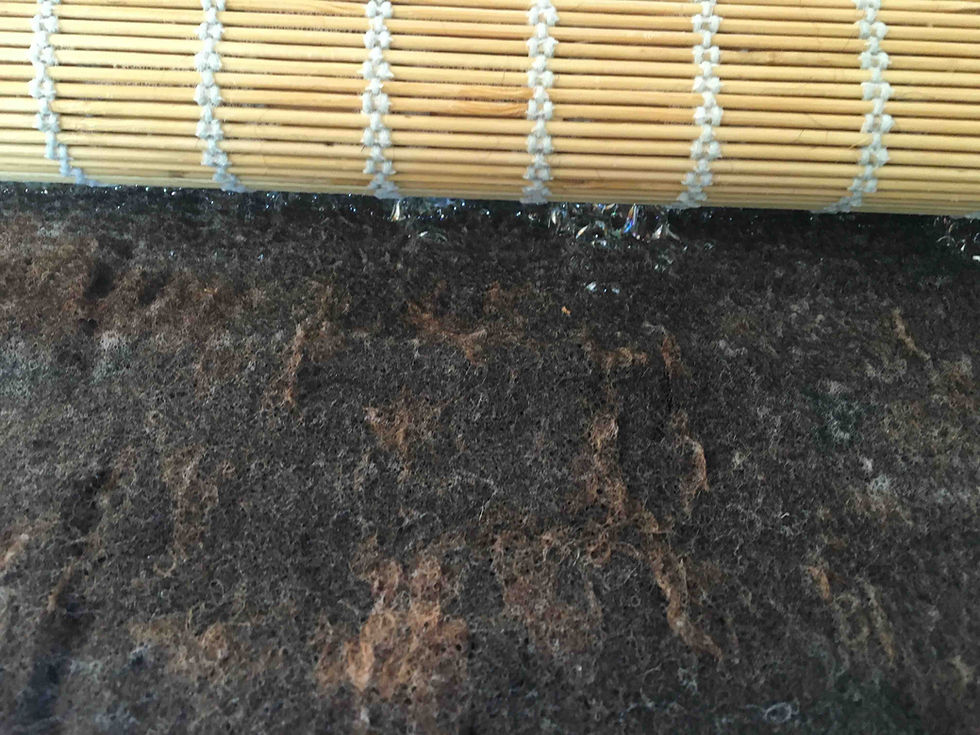Wet Felting
- Jane's Felt

- Mar 13, 2021
- 2 min read
Updated: Apr 17, 2021

A short piece on wet felting in preparation for needle felting the finished piece.
Felt has an ancient history. It has been found in Siberian tombs that date back to the 7th century BC and was used for clothing, saddle-blankets and yurts. One theory is that felt was discovered when Mongolian horsemen put fleece under their saddles. The friction and sweat created by riding caused the fleece to felt. This can be replicated by putting fleece into the bottoms of children’s wellingtons!

When a wool jumper felts in the washing machine, it is caused by a combination of warm water, soap and particularly friction. The process of felting occurs when the overlapping scales on the surface of the wool fibres open and become interlocked, so when I make pieces of felt as the starting point for my needle felted pieces, I make this happen in a controlled way. When washing a raw fleece, I have to be especially careful not agitate the wool too much or it will felt and become unusable.

I have a bamboo felting mat which resembles a giant Sushi mat on which I lay out the layers of raw fleece in different directions. I lay a piece of old net curtain over the top of the wool so that I can soak the wool with warm, soapy water without disturbing the fibres. I gently rub over the top of the net curtain until the fibres begin to knit together. I carefully remove the net curtain and tightly roll the bamboo mat. Then the hard work begins. I press and roll the mat 200 times, unroll the mat and carefully turn the piece of felt. I roll another 200 times, unroll and turn again ensuring that the piece of felt stays flat and shrinks evenly. In total, I roll every piece of felt 600-800 times so it is quite a shoulder workout.


Once I have set up my work station for wet felting, I make a number of pieces of felt in different colours, including felted alpaca fibre. This behaves differently from wool because it is hair and does not have the same surface structure as wool. To felt alpaca, I lay it on top of a layer of wool so that the scales on

the wool fibres trap the alpaca fibres into place.
Once all my pieces of felt are finished, I rinse out the soap and hang them up to dry.







Comments